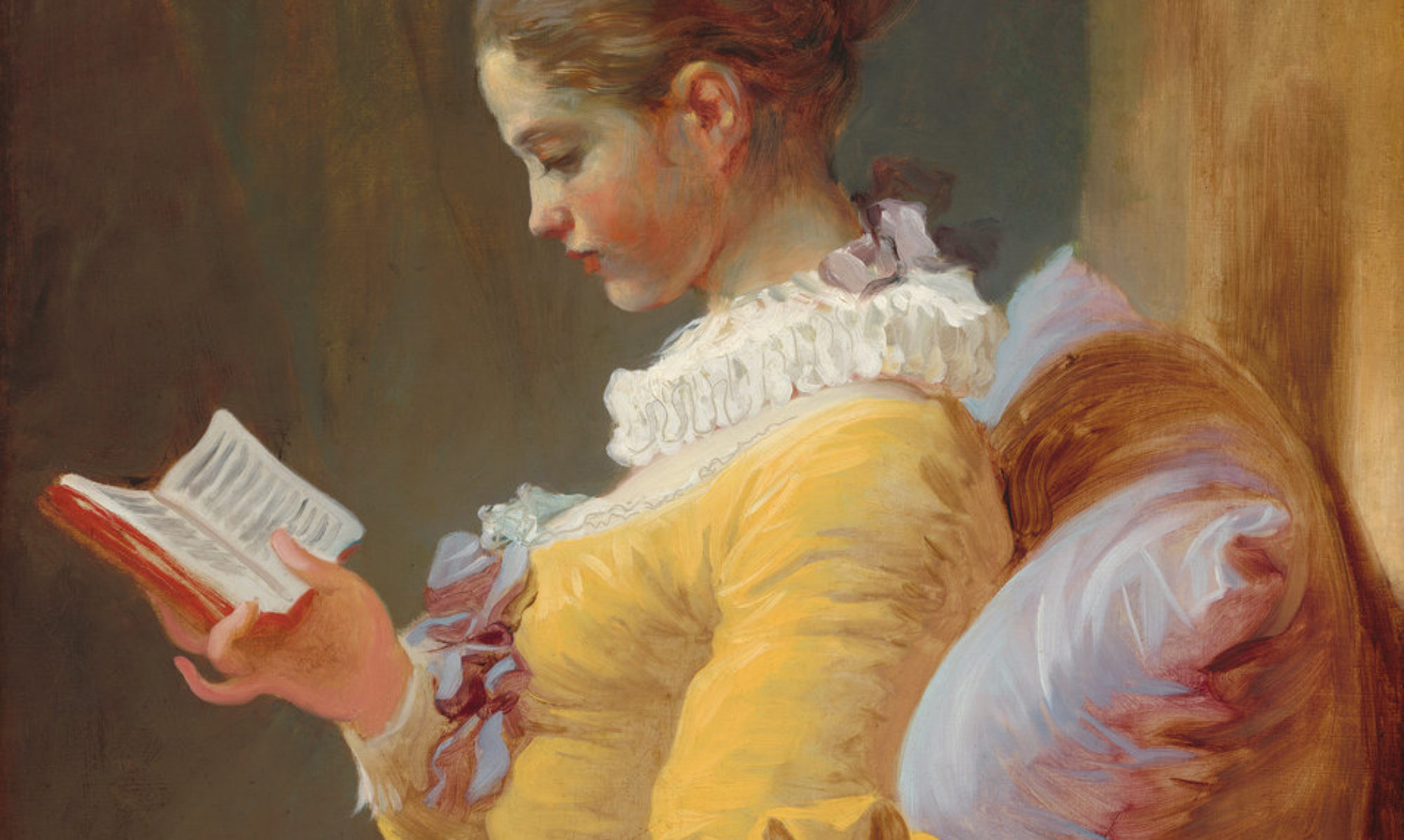Trecho de “THE YEARS”, livro de Virginia Woolf. A tradução foi um exercício das aulas de Tradução Literária de Alessandro Barriviera.
Um pequeno vinco pronunciou-se entre suas sobrancelhas. A testa franzia conforme a leitura. Ele lia, fazia uma anotação, relia. Estava imune a todos os sons. Nada via além do grego à frente. Mas, conforme lia, seu cérebro aos poucos se atiçava. Percebeu algo despertando e se encaixando na mente. Conseguia apreender frase após frase de maneira exata, firme, ainda mais exata do que na noite anterior, percebia, fazendo uma pequena anotação na margem. Palavrinhas antes insignificantes agora exibiam variações de sentido, que alteravam o sentido. Fez outra anotação, aquele era o sentido. A própria destreza em decifrar a frase completa e imediatamente lhe proporcionou uma onda de animação. Ali estava, limpa e completa. Mas é preciso ser certeiro, exato. Mesmo esses garranchos precisam ser claros como a luz. Consultou um livro, depois outro. Então recostou-se para ver com os olhos fechados. Nada deve resvalar para o nebuloso. Os relógios começaram a bater as horas. Ele ouviu. As badaladas continuaram. As rugas que haviam marcado seu rosto desanuviaram. Ele se recostou, os músculos relaxaram. Olhou por cima dos livros, para a penumbra. Sentiu como se tivesse se jogado na grama após uma corrida. Mas, por um momento, parecia que ainda estava correndo. Sua mente continuava sem o livro. Ela viajou desimpedida por um mundo de puro sentido, mas que gradualmente perdia o sentido. Os livros se projetavam da parede: ele via os revestimentos de cor creme, um ramo de papoulas num vaso azul. A última badalada soou. Ele suspirou e se levantou da mesa.
Original:
A little dint sharpened between his brows. He frowned as he read. He read; and made a note; then he read again. All sounds were blotted out. He saw nothing but the Greek in front of him. But as he read, his brain gradually warmed; he was conscious of something quickening and tightening in his forehead. He caught phrase after phrase exactly, firmly, more exactly, he noted, making a brief note in the margin, than the night before. Little negligible words now revealed shades of meaning, which altered the meaning. He made another note; that was the meaning. His own dexterity in catching the phrase plumb in the middle gave him a thrill of excitement. There it was, clean and entire. But he must be precise; exact; even his little scribbled notes must be clear as print. He turned to this book; then that book. Then he leant back to see, with his eyes shut. He must let nothing dwindle off into vagueness. The clocks began striking. He listened. The clocks went on striking. The lines that had graved themselves on his face slackened; he leant back; his muscles relaxed; he looked up from his books into the dimness. He felt as if he had thrown himself down on the turf after running a race. But for a moment it seemed to him that he was still running; his mind went on without the book. It traveled by itself without impediments through a world of pure meaning; but gradually it lost its meaning. The books stood out on the wall: he saw the cream-colored panels; a bunch of poppies in a blue vase. The last of the strokes had sounded. He gave a sigh and rose from the table.
Hits: 158
